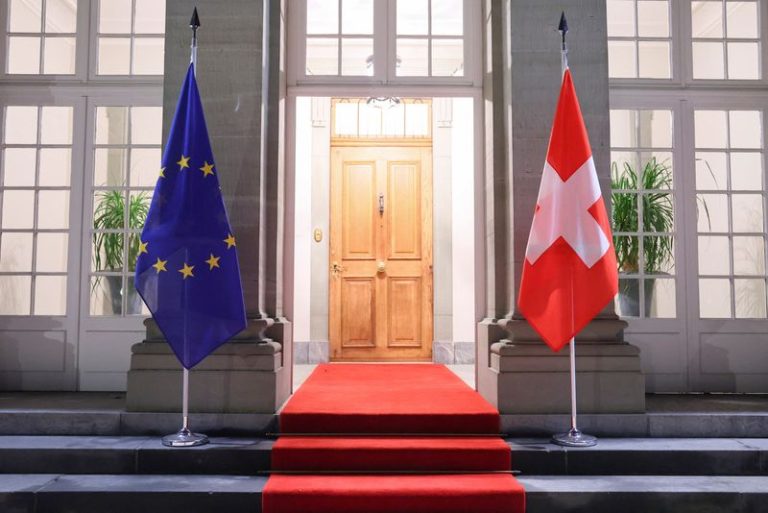By John Revill
ZURICH (Reuters) – Swiss businesses are welcoming a new deal to overhaul the country’s relationship with the European Union, bringing Christmas cheer to an economy expected to be one of Europe’s most resilient in a difficult year 2025.
Business lobbies, economists and companies say the agreement unveiled Friday stabilizes relations with the bloc – which accounts for more than half of Swiss exports – even as it faces a difficult ratification process involving a probable referendum.
“Market access is crucial: European trade is the cornerstone of the Swiss economy,” said Samad Sarferaz of the KOF Economic Institute at ETH, a university in Zurich. “The benefits won’t be seen immediately, but they will be there in the long term.”
The Swiss economy was already expected to outperform that of its neighbors. UBS sees it growing in 2025 by 1.3% compared to 0.6% for Germany, 0.9% for France and 0.9% for the euro zone.
Without a deal, Switzerland would face potentially massive disruptions to trade and access to the EU market, Sarferaz said.
The EU deal will harmonize standards, allow access to research programs and ease the movement of people – with some protections to allay Switzerland’s fears over mass migration.
This will help the Swiss pharmaceutical sector, which generates more than 50% of Swiss merchandise exports, gain access to the best workers and research, said Georg Daerendinger, spokesman for industry association Interpharma.
LEGAL CERTAINTY
Pharmaceutical giant Roche said it had created planning and legal certainty. If the Mutual Recognition Agreement (MRA) between Switzerland and the EU in this sector is ultimately not updated, pharmaceuticals will face higher costs, the company said.
Rudolf Minsch, chief economist at economic lobby Economiesuisse, said the commitment to stability was a welcome tonic in a world torn by wars and trade tensions.
This was especially true given the weakness of Germany – Switzerland’s main trading partner – and the appreciation of the Swiss franc, which makes exports more expensive.
“Previously, when Germany got a cold, Switzerland got pneumonia,” Minsch said. “Not anymore.”
The strength of the franc has forced companies to be more efficient and to specialize more. Switzerland has also concluded free trade agreements with more than 30 countries, including India and China.
Low inflation, low interest rates and robust domestic demand supported by real wage growth have made the economy resilient, said Claude Maurer, chief economist at BAK Economics, a think tank.
Foreign demand remains a concern, however, and the EU deal is unlikely to provide a quick solution to the problems in neighboring Germany, where the key auto industry is struggling.


